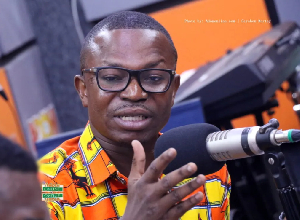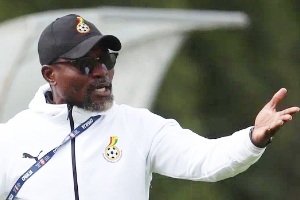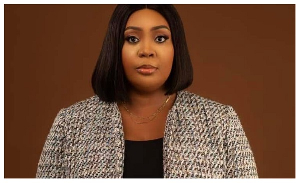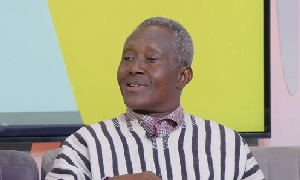After waiting for a while without receiving any reply to his petition against his detention to the President and the Government, Dr Danquah wrote another letter on 8th January, 1965, entitled “Demand for immediate release and opportunity for offer of amends.” In the letter, Dr Danquah challenged the legality of his imprisonment, and asked for his immediate release, and held the President and his Ministers, “you, jointly and severally, or by any one else on your behalf”, responsible for what seemed like a grand scheme for his demise and demanded damages.
“The situation so created by the President’s failure or disinclination to allow me to removed to a Hospital, together with the fact that I am not entitled to be attended by a medical man of my own choosing, tends to confirm the growing conviction that at the bottom of my imprisonment lurks an attempt or desire to damage my physical body and my mental equipment, even the salvation of my soul, –– or that those responsible for my imprisonment do not care if I experience such damage.”
He continued, “There is no such power in you, gentlemen, to commit me to prison on charges triable by the Courts of Justice. You have made an egregious and rather very damaging mistake against me, and I hereby advise and request for my release… Your Excellency and Gentlemen.” Ending with this PS: “I celebrated my 69th birthday in Prison 218 days ago, on 21st December, 1964. I am now moving rapidly to my 70th birthday. Wish me luck.”
After this, Dr Danquah penned his final letter to President Nkrumah, 12 days before he died. As noted by his contemporary and biographer, L H Ofoso-Appiah, J B’s last letter to Nkrumah was meant to be an apology, but was not much different from all previous letters. It was written because his wife had complained to him during a visit on 20th January, 1965, that his letters had annoyed Dr Nkrumah and had made him decide against releasing Dr Danquah. Mrs Danquah would not tell him how she got to know that Nkrumah was angry with her husband, but insisted that all such letters from Danquah should cease. “J B was naturally upset that he had caused his wife so much unhappiness,” Prof Ofosu-Appiah writes, “but he could not bring himself to admit that he had done anything wrong. He was also upset that his wife had not received a copy of that letter of demand.”
The last letter to the President reads as follows:
“SPECIAL BLOCK”,
NSAWAM PRISON,
NSAWAM, GHANA.
23rd January 1965,
His Excellency,
Dr Kwame Nkrumah, P.C., etc.,
President of the Republic of Ghana
Office of the Government of Ghana,
Accra, Ghana
Dear Dr. Nkrumah,
My wife paid me a visit at the Prison here on Wednesday, January 20th – the first after an absence of two months and three weeks. Naturally, I was greatly happy to see her, but she was not herself very happy.
She appeared distressed over what she described as annoying letters from me to Your Excellency.
She said on Christmas Eve, December 24th, Mr. William Ofori Atta was released from detention with some five or six others; that she heard my name had been on the list of those to be released that day. It was afterwards struck out probably struck out probably because of my annoying letters.
I tried to explain the position to her, pointing out that my letter to you in November, or just before Christmas, had been on the subject of my health and that the Medical Officer here had recommended my removal to Hospital, but that you had rejected that recommendation for my removal to Hospital, and I therefore tried to impress upon her mind that my life was exposed to the danger of death.
To this my wife gave a fitting reply that I should not let such thoughts worry me, but that if God had not designed that I should die here, death would never overtake me in this Prison. Indeed, under the stress of her sense of distress over my conduct towards you, and under the stress of my own sense of distress that injustice was being meted out to me, it was difficult for our talk to be amiable or cordial, and tempers therefore rose.
Eventually I told her that I had recently written a letter to you and your Cabinet Ministers demanding my immediate release and the offer of amends by you and the Government for the damage caused by my imprisonment, and that I had asked in my letter to the Government that a copy of it should be sent to her, and I wanted to know whether she had received such a copy.
At this my wife’s anger flared up again, and she told me that no such letter had reached her, but that information had reached her that my last letter to you had greatly annoyed and upset Your Excellency. She added that “Today everybody was frightened in Ghana and that it would be better for me to keep quiet and trust in God than to upset your Excellency with strong letters”. She disclosed that Mr. da Rocha had gone and seen her in connection with my letter asking him to call and visit me. He had told her that I had myself explored all avenues in respect of this law of detention, and that it was difficult to know what else anyone could do in the matter, but that, in any case, he, Mr. da Rocha, had applied for permission to visit me at the Prison here, but that permission had not been granted him to make such a visit.
Upon all these, tears flowed down the eyes of my wife, and I realised that her sense of distress was overpowering.
In respect of my suggestion to her some time ago that she should call and see Your Excellency with some elderly persons, led by Nana Sir Tsibu Darku, she explained that her application to you for the purpose had not been granted. I then asked her for some information as to who had accompanied her in her interview with you in October last year, but to this she shortly replied: ‘I wouldn’t tell you’.
In fact I have never seen Elizabeth in such a petulant temper against me before, and I became greatly disturbed. I asked her to call and see me next week as I wished to consider my position and to straighten matters up with Your Excellency.
Speaking personally, Your Excellency must be aware that despite some great political differences between us, especially as affecting the present Republican Constitution for the adoption, or non-adoption of which, I stood against you for the Presidency, I have never had a personal quarrel with you, and that all my letters to you since my detention in January last year have been couched in the most respectful terms with due respect to your position as President of the State and also, in view of what, at least on the surface, appears to be a friendly atmosphere in which we both live.
May I, in this connection, recall that my first petition of the 21st May, 1964 for my release on cultural and humanitarian grounds, laid much stress on the fact of what we both held in the reverence and believed in common, Africa and the greatness of Ghana. I urged upon you in that letter that to enable me to continue my cultural contribution to these great ideals, it was useless keeping me in prison, kicking my heels away from the work I love, my profession, my duty to my family and children, and the books and the learned societies which help the advancement of these imperishable ideals.
I much regret to say I was not honoured with any reply from you to this letter, despite its great human and scholarly appeal.
My next petition, in order of time, but first in order of importance, was the one dated the 12th of June, in which I set out the entire course of my life and ‘activities’, from June 1962, when I came out of the first detention, to January 4th, 1964, when I was again arrested. And I believe I made a case in that letter which, looked at fairly and squarely, what the Government of Ghana, with Your Excellency as the head, should have done for me was to send a distinguished national delegation to thank me for my contribution to the nation’s wealth of thought, culture and progress, instead of sending against me hostile troops of the Ghana Army to invade me and destroy my home life as if I was the greatest felon and the vilest enemy of our beloved land.
To this letter, too, I received no reply of any kind, except that on the 15th August the Assistant Director of Prisons came to my cell and read to me a letter received by him from the Government to the effect that my petition was receiving the attention or ‘consideration’ of Government.
That was five months ago, and up to now, what the ‘consideration’ led to has not been communicated to me. In fact, it was never made clear to me to what ‘petition’ that letter of the Ghana Government referred, whether the cultural petition of 21st May, or the petition of representations of the 12th June.
My last letter of representation was dated 30th November and must have reached you early in December. In fact, on Christmas day I received a message from the Director of Prisons, through the A.D.P., that that petition had been sent to you. It was that petition which dealt with the vital question of my life as endangered here, and I asked for my immediate release or removal to the hospital as recommended by the Medical authorities here.
This letter was also treated with a silence, a lack of reply or response, which simply astonished me.
My last communication is the one on 8th January, the one which appears to have greatly upset my wife and to have led her to overcome her reluctance to visit me at Nsawam, owing to the unpleasant feelings it gives her. On this occasion she traveled all the way to Nsawam, 20 miles or so, to see me because she had been upset by my annoying you.
This last letter, was of course, not a ‘representation’ or a petition. It was a lawyer’s letter of demand on the grounds that my detention was illegal and that I should be released immediately and an offer of amends made my you, your Ministers and the Government of Ghana for the horrible damage you and they have caused me, including the breaking-up of my home, the damage to my legal profession and to all the great values I hold dear for Ghana and the world, as well as, of course, as to my family.
I received a reply promptly to this letter, but it contained no offer of amends nor of any expression of regret for the damage done me.
The reply was read to me by the Assistant Director of Prisons on the 15th January. It went off at a tangent to inform me that after my arrest and detention in January 1964, the Parliament of Ghana had passed a new amendment to the Preventive Detention Act to the effect that a person detained would have no right to make ‘representations’ to any person or persons other than the President who ordered his detention.
I was astonished by the contents of this letter and I asked for a copy to enable me to reply to same, but both requests were turned down on the ground that copies of the letters are not supplied, and that no replies to such letters are permitted either.
So far as I know, neither the Government of Ghana, nor the Parliament of Ghana, or the Courts of Justice are ‘persons’ in the sense in which Kwame Botwe is a person. Each of these is an institution an “it” and not a ‘he’ or ‘she’, and I cannot therefore see how my letter of demand dated 8th January in the category of ‘representation’ to any person other than the President. Under the Constitution, the President has a Cabinet of persons who, together with him, constitute the Executive of the Government of Ghana , with collective responsibility, and they together, as constituting an ‘it’, are not ‘private persons’, but are parts of an institution- the GOVERNMENT OF GHANA.
To digress here a little. Another letter read to me on the same occasion was that from a man I do not know at all but who claimed that I had made a ‘complaint’ to him of my being chained or put in leg irons by some warders here. He went on to say that he had enquired into the ‘complaint’ and had ‘dismissed’ the same for want of ‘evidence’.
I was greatly shocked by this because apart from my wife, Elizabeth, who saw the hospital bandage on my left thumb during her visit here in July, and also the A.D.P. (Mr. Baiden) who, on seeing the bandage on my hand in July or August, asked for the cause of it, no one in the entire world, other than the Medical Officer and his Nurses, had cared to ask me how the sprain came about. The only person to whom I made a real complaint, Mr. Sagoe, Superintendent of the Special Block, took no particular notice of it, except that he examined the sprain on my thumb and the scratches on my left leg, and reported the matter to the Doctor. So far as I know he made no report of it to the A.D.P until Mr. Baiden himself enquired of it from me.
How then came this person who is, apparently, not a Magistrate and has no jurisdiction in assault and battery cases at Nsawam, to such a brutal decision to dismiss the ‘complaint’ for want of ‘evidence’, when the merest inspection or X-ray of the affected parts, quite apart from verbal evidence of some living persons, could easily establish the case? Queer Justice!
Here, again, I applied to get a copy of the letter from the person who dismissed my ‘complaint’, but again I was told that neither a copy nor a reply was permissible to me. One may recall here, on this question of justice, that it was our people’s love for justice that compelled them to ask the British in 1843 to come back to Ghana, a situation which led to the Bond of 1844. The British people, like the Dutch and the Portuguese, had left the country in 1828, for quite a number of reasons, including military, but our people’s love of British justice as administered by Capt. George Maclean, compelled our ancestors to welcome the return of the British. Now the people have gone away from us only some seven years ago, in 1957, and already some people are asking in regard to certain incidents, ‘Is this justice?’
These events of the Assistant Director of Prisons reading two letters to me, and refusing me copies by reason of the prevailing rules, happened on the 15th and 16th January, it was four days later, on the 20th January, that my wife’s visit took place, and what happened between us, I have narrated as faithfully as I can above.
Your Excellency: you will appreciate that the whole of my existence and the entire course of my career for 69 years have been put in jeopardy by the present detention which is absolutely baseless. Therefore I have no alternative but to seek to defend my existence and my career and the interests of my country, Ghana, whom I love, and of my family, wife and children who are very dear to me.
If therefore in the course of my demand for right, freedom and justice, in my legal letter of 8th January, 1965, I said anything which annoyed you personally, or which was not other than a lawyer’s language to make a clear demand for what he is entitled to in law, in perfect pursuit of right, freedom and justice, then I most sincerely and most unreservedly apologise to Your Excellency for the untoward language.
My wife’s distress over her own feeling that I appear to have hurt Your Excellency is quite understandable for she, like many of our countrymen, is frightened of the situation today, where our country, which formerly did not know of seditions, not to mention treasons, is now fully of interminable treason trials and numerous number of secret detentions over which no one seems to have any remedy but to capitulate and to pray earnestly that God may one day be pleased to save Ghana from this curse.
I am persuaded that your concern for the happiness of my wife, as it must be for the wife of every detainee, must be real, otherwise, I do not see how my wife could have learnt of my letter having annoyed you, and to follow it up with a special visit to me 12 days later, on the 20th January, the date of the letter being 8th January.
I do not pretend to guess how she got to know that you had been greatly upset by that letter, but in order that her mind should be completely eased on that score. I respectfully ask you, in the name of all that you hold dear, even in the name of God, to assist my wife by complying with the request in my letter that a copy of that letter of 8th January 1965 should be sent her by your Government. I feel certain that if she gets the letter and reads it and becomes informed that I am seeking her interest in that letter, so that either when I am alive, or when I am rendered incapable of acting for myself by any fatality, such as death or insanity, there will be legitimate provision to stabilise her in life and enable her to sustain me in her memory.
She, has, indeed, assured me that unless it be God’s will I would never die in this Prison, and this is a conviction which I am myself persuaded to share strongly. But there is nothing like making provision against unexpected possibilities.
I therefore earnestly appeal to you to provide my wife with a copy of my letter to you and your Government, so that when she calls to see me next Wednesday the 17th January, 1965 (she expressed her preference to call again in a fortnight’s time, that is 3rd February), we, that is, she and I, should be in a position to start on a common ground for an amicable discussion and avoid recriminations, in particular, as affecting your Excellency personally.
I do hope also, Sir, that you will feel persuaded to supply her with a copy of this letter also.
And with my warm regards.
Believe me to be,
Your Excellency,
Yours very sincerely and obediently,
(Sgd.) J. B. DANQUAH
On 29th January 1965, six days after writing the above letter, J B was seen by a Psychiatrist who stated that apart from Hypertension of 220/120 there was nothing significant. On 4th February 1965, he was dead. The Prison Commission Report states: “On the 4th February 1965, at 6:10 a.m., following normal routine, Dr. J. B. Danquah was unlocked and escorted to the end of the corridor to take his bath at 6:20 a.m. On returning to his cell, he found, apparently, that his cell had been thoroughly searched and some of his things, including his Bible, were on the floor. He lost his temper and began to abuse the warder. This brought on a heart attack and he collapsed and died. The Medical evidence during the period January 1965 up to the time of his death is of interest.”
According to L H Ofosu-Appiah, “The news of Danquah’s death came as a shock to most people. But to Nkrumah and his prison doctors and staff it could not have been unexpected, since the medical reports show that there was a determination to prove that Danquah was malingering. The fact that only foreign medical doctors were used for treating detainees is enough evidence that the callousness was deliberate. Even the greatest of Nkrumah’s admirers, after reading through the evidence, will admit that he willed Danquah’s death and got it. But if he did not feel any pity while Danquah was suffering, he at least felt ashamed after his death. For Mr. Koi Larbi, a barrister-at-law, and one of the detainees, states that after Danquah’s death better food was given to them, and those who complained of ill-health were admitted to the prison hospital.
“There was a regulation that dead detainees should be buried where they died. Nkrumah did not have the courage to apply that ruling to J.B. But the normal procedure of holding a post-mortem examination and an inquest were dispensed with. Instead, relations were informed that they could take the corpse away for burial; and Mr. William Ofori tta carried out all the formalities required by the Prison Regulations and took the corpse away at 7:55 p.m. on February 4, 1965. The cavalier manner in which an inquest was dispensed with arouses suspicion, especially since the Medical Officer was a non-Ghanaian called Dr. R. Negovetic,” Prof. Ofosu-Appiah wrote in his book ‘The Life and Times of J B Danquah’, (1974).
Opinions of Thursday, 5 February 2015
Columnist: Danquah Institute


















